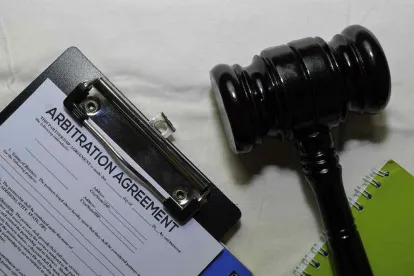The legal path between employee arbitration agreements under the Federal Arbitration Act (“FAA”) and representative claims under the California Private Attorney General Act (“PAGA”) has been anything but smooth. A new (albeit unpublished and uncitable) case, Piran v. Yamaha Motor Corp., et al., No. G062198, 2024 WL 484845 (Cal. Ct. App. Feb. 8, 2024)(unpub.) (“Yamaha”), helps to illustrate the challenges and unanswered questions lingering in the wake of this rapidly-developing area of law.
We have previously written about both the United States Supreme Court’s 2022 decision in Viking River Cruises, Inc. v. Moriana, 596 U.S. 639, 142 S. Ct. 1906, 213 L. Ed. 2d 179, reh’g denied, 143 S. Ct. 60, 213 L. Ed. 2d 1145 (2022) (“Viking River”) and the California Supreme Court’s responsive 2023 decision in Adolph v. Uber Techs., Inc., 14 Cal. 5th 1104, 532 P.3d 682 (2023) (“Adolph”). As both are key to understanding Yamaha, we provide a quick recap here.
Viking River overturned-in-part California Supreme Court precedent that PAGA claims, both by an individual employee on the employee’s own behalf (“individual claims”) and by the individual as a representative of other employees (“representative claims”), could be neither severed from each other, nor subjected to arbitration. In a decision authored by Supreme Court (“SCOTUS”) Justice Alito (followed by two separate concurrences by Justices Sotomayor and Barrett), the Supreme Court noted that individual plaintiffs can validly consent to arbitration of all claims, including their individual PAGA claims. As such, those claims must be subject to arbitration as preempted by the FAA.
With respect to representative PAGA claims, SCOTUS walked a narrower line. Despite holding that these claims could continue in litigation in theory, SCOTUS noted that, under PAGA, a prospective employee representative would lose standing to pursue a PAGA claim once his or her claims were resolved through arbitration. As such, Justice Alito reasoned, representative claims should be dismissed once individual claims are arbitrated. Viking River, 596 U.S. at 663. However, in her concurrence, Justice Sotomayor presciently noted that California courts were the ultimate arbiters of standing under PAGA, and “if this Court’s understanding of state law is wrong, California courts, in an appropriate case, will have the last word.” Id., 596 U.S. at 664.
California’s last word on standing came in Adolph, in which the California Supreme Court held that PAGA plaintiffs would maintain their standing to pursue representative PAGA claims even after their individual claims were compelled to arbitration in accordance with Viking River. Adolph, 14 Cal. 5th at 1128. Under the formulation put forth in Adolph, a plaintiff would arbitrate the primary standing issue—whether the plaintiff is “an aggrieved employee” under PAGA—after which the arbitrator’s standing decision would become binding on a reviewing court presiding over representative PAGA claims. Id. at 1123-24. Despite discussing how this broad standing requirement could lead to “alleged abuses of PAGA,” the California Supreme Court deflected these issues to the California legislature to resolve “if it chooses.” Id. at 1128.
While Adolph was pending, other cases grappling with arbitration in the PAGA context were winding their way through the California court system. One such case was Yamaha, in which plaintiff Piran amended her class-action complaint to include individual and representative PAGA claims only after defendant Yamaha moved to compel all of her claims into arbitration. Yamaha, 2024 WL 484845 at *2. This tactical move paid off for Piran in the first instance; the Superior Court of Orange County refused to compel arbitration of Piran’s individual PAGA claims and stayed all of her PAGA and class-based claims pending arbitration of her non-PAGA and non-class-based claims. Id. Accordingly, Yamaha appealed to the Fourth District Court of Appeal, Division 3. Id. While Yamaha’s appeal was pending, Adolph was decided. Id. at *3.
Relying upon Adolph and an in-depth discussion of its interaction with Viking River, the Fourth District affirmed-in-part and reversed-in-part. Id. at *5. Specifically, the Fourth District held that it was error under Viking River not to compel Piran’s individual PAGA claims to arbitration. Id. at *5. Similarly, in accordance with Adolph, the Fourth District held that the representative PAGA claims should remain in court, stayed pending the outcome of arbitration, and that Piran would maintain standing to litigate them thereafter. Id. at *5-6.
Further, the Fourth District held that Yamaha failed to properly brief the trial court’s “purported error in staying the class claims pending completion of the arbitration,” because Yamaha had “not articulated how any alleged error by the trial court was prejudicial.” Id. at *8. For reference, Yamaha’s supplemental brief following Adolph reads in relevant part:
Adolph does not impact the issue of whether the trial court’s order “staying” Piran’s “class claims” violated California law and the FAA by failing to give effect to the arbitration agreement’s requirement of individualized arbitration . . . Nothing in Adolph discusses standing to pursue class action claims, nor attempts to call into doubt binding U.S. Supreme Court precedent holding class action waivers are enforceable under the FAA.
Appellant’s Supplemental Brief, Yamaha Motor Corp., U.S.A., et al. v. Piran, 2023 WL 5432185, at *6 (Aug. 7, 2023) (emphasis in original).
Following Adolph and Yamaha, employers are left with both questions and answers. It seems relatively clear now that employees must arbitrate their individual PAGA claims, while their representative PAGA claims will be stayed pending those arbitral proceedings. However, what will happen in future cases, including after arbitration, remains unknown.
For example, if the arbitrator’s decision that a plaintiff is a qualified PAGA representative is binding on a court, then employers may be incentivized to avoid the informality which often characterizes arbitral proceedings. After all, a loss on this point at the arbitral stage may result in steep civil penalties during PAGA litigation. It is equally unclear how many plaintiffs will, like Piran, begin amending their complaints to add PAGA claims. On the one hand, their personal ability to collect on the PAGA claims will be somewhat more limited; on the other, PAGA exerts pressure for settlement. And these mysteries say nothing about the Fourth District’s conclusion that it was not per se prejudicial to stay non-PAGA class claims pending arbitration of all of a plaintiff’s individual claims, PAGA and non-PAGA alike, putting even more pressure on the arbitration and raising the threat that class and collective action waivers will soon be deemed invalid by at least some California courts.
Given the rocky terrain and uncertain footing, California employers should consult their attorneys regarding the best strategy to employ in the face of PAGA claims.
Listen to this post here.






 />i
/>i

